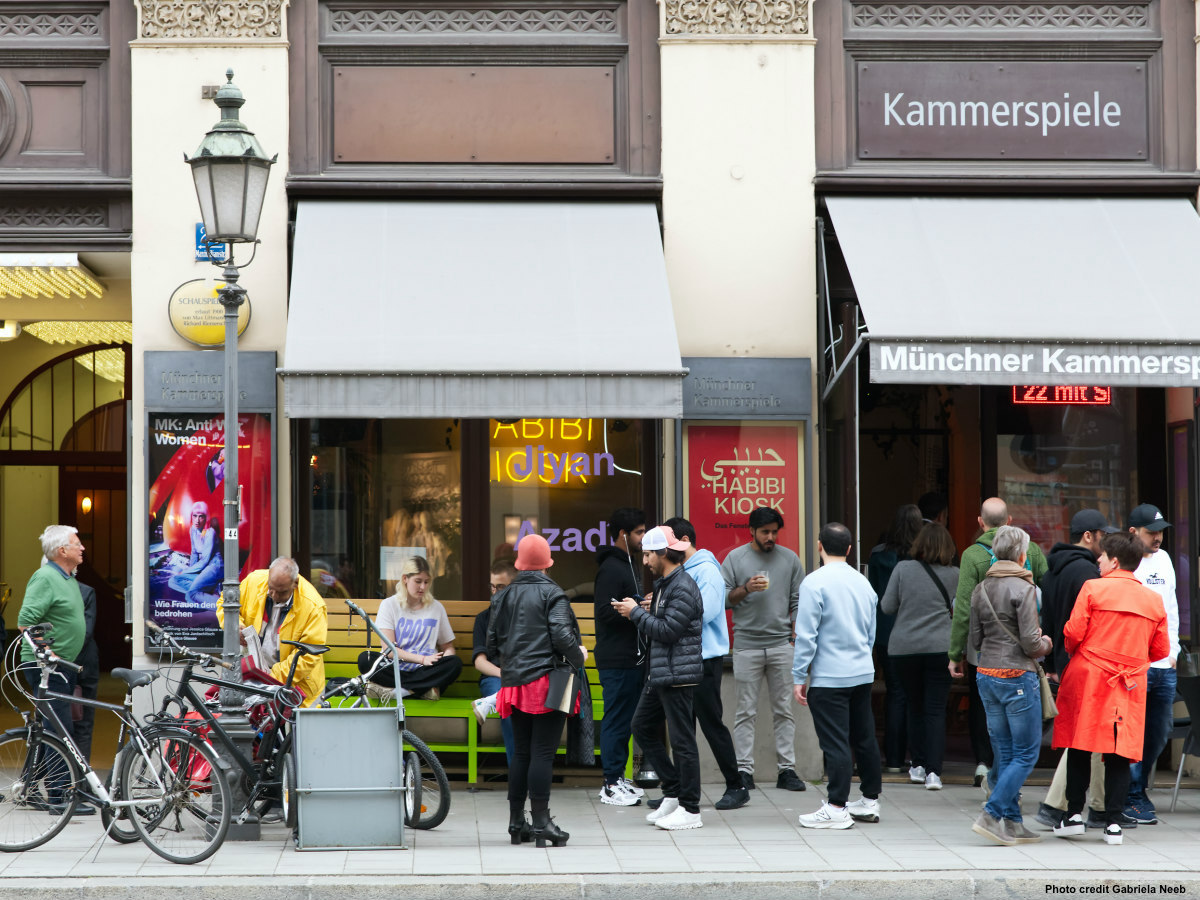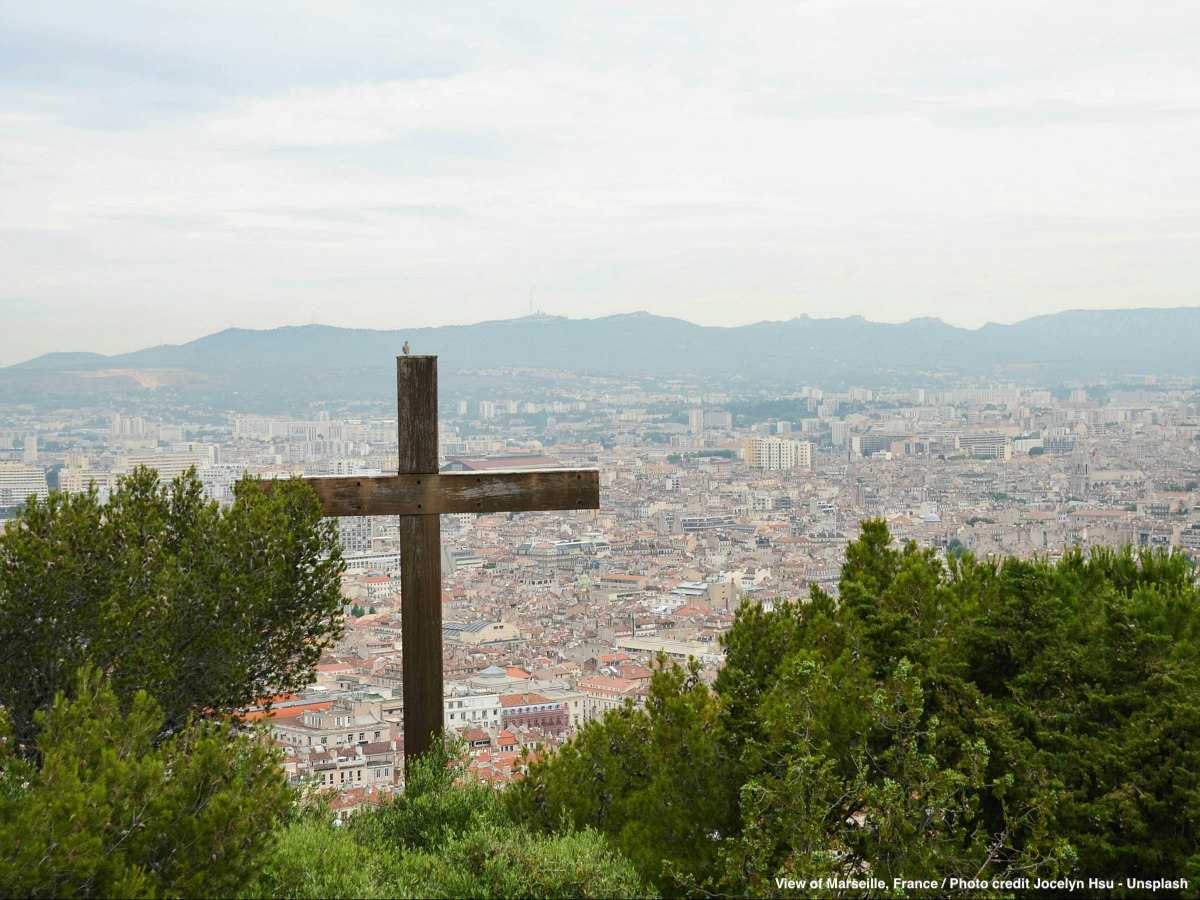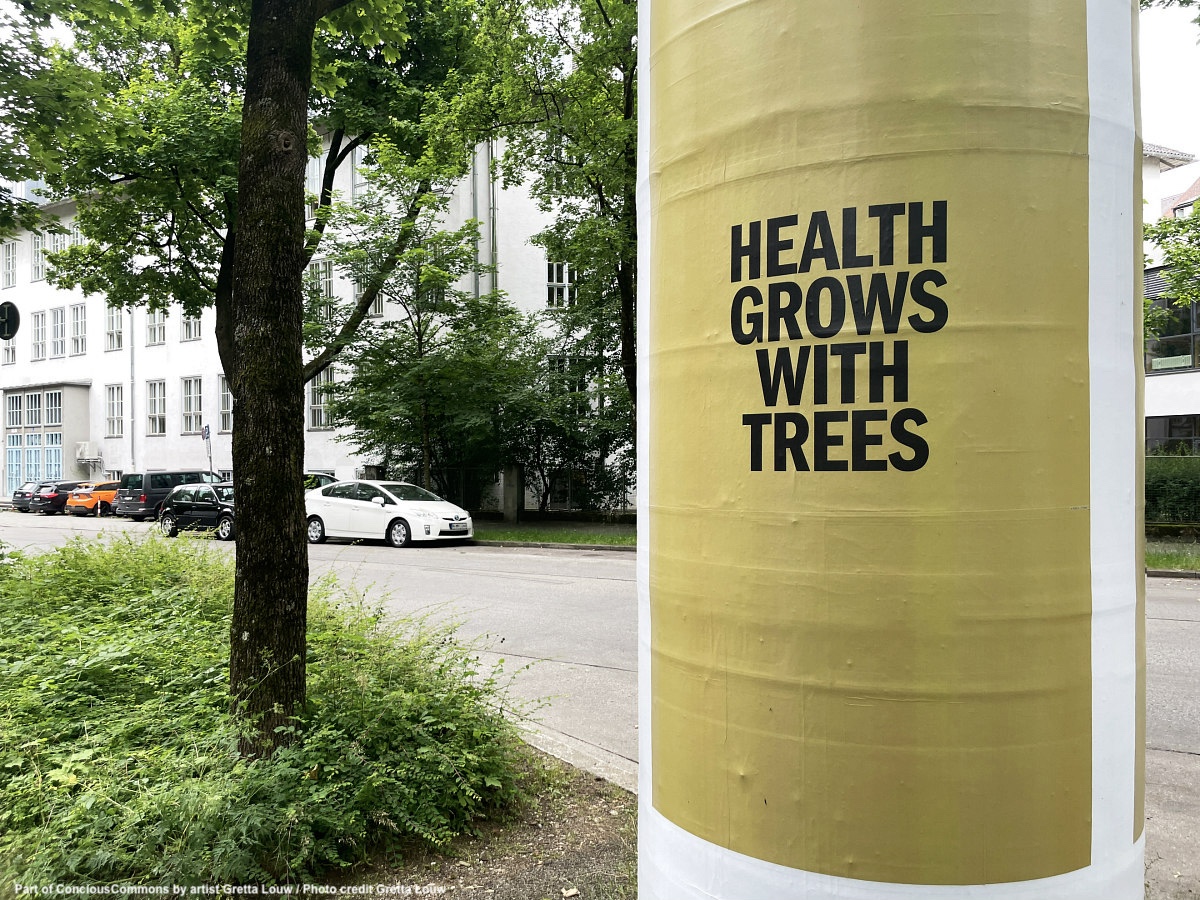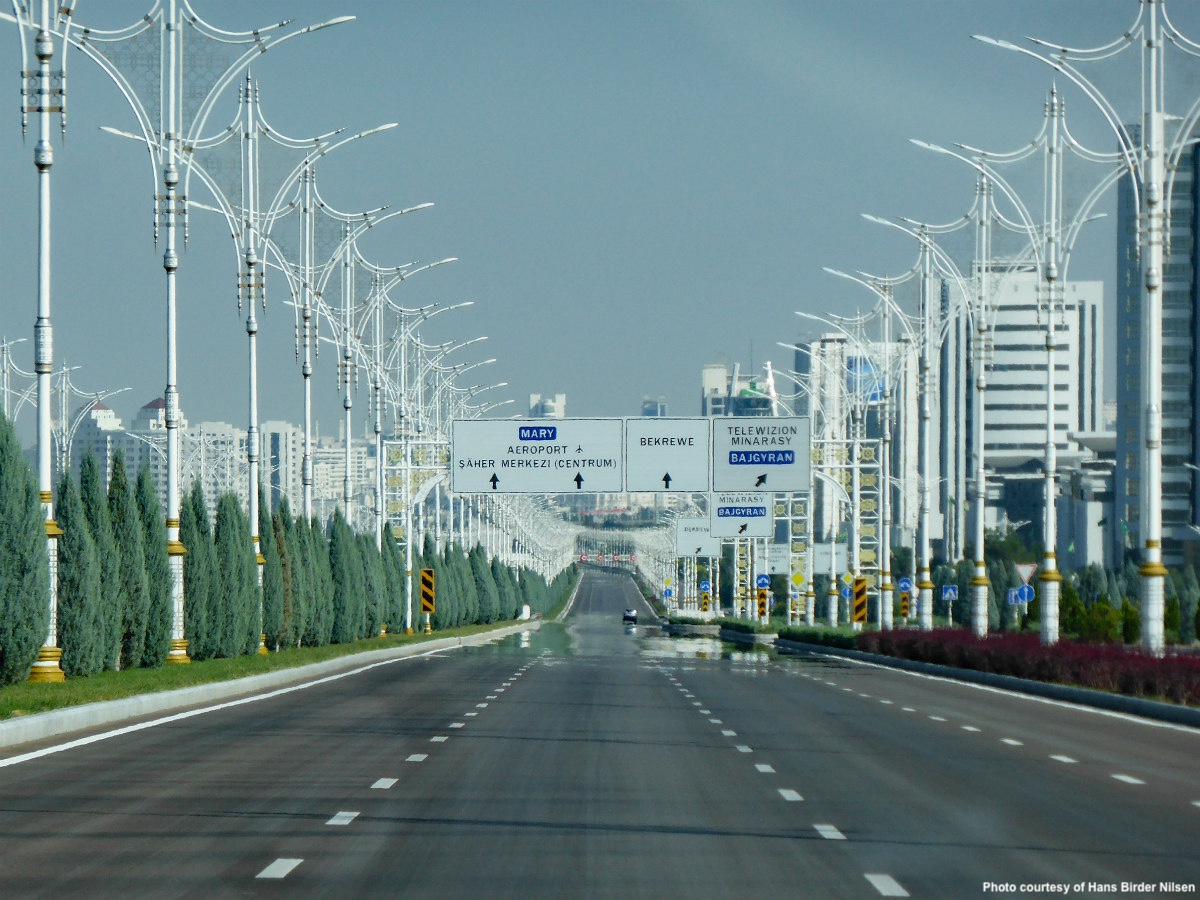On a warm evening in Munich last summer, I was struck by a joyous bunch dancing to middle eastern music on the other side of the upscale Maximilianstrasse from Ralph Lauren, where I had just emerged from an event. Hypnotized by the vibe, I crossed over to discover a space that would make locals rub their eyes, wondering if what they’re seeing is the culture scene in Munich perhaps taking an interesting turn.
Poking my head through the door, I stepped in. The space revealed the hangover of a concert, as I stepped on little black pieces of rubber spread all over the floor. Eight months later, I would find out that they were the by-product of serious dancing in flip flops.
The man who would have to go barefoot home was seven years old when he last saw the music legend Ustad Noor Bakhsh in Baluchestan province (an area between Afghanistan, Iran, and Pakistan). After 30 years living in Germany, he never thought he’d see him again. Habibi Kiosk made it possible.
I sat down with two of Habibi Kiosk’s brainchildren – Dîlan Çapan, deputy artistic director of the Habibi Kiosk, and former assistant director at the Munich Kammerspiele theater (in German, the Münchner Kammerspiele); and Sebastian Reier-Roelly, director of music at Münchner Kammerspiele theater, to talk about what the Habibi Kiosk is all about and where they go from here.
***
Although the Habibi Kiosk looks like an independent cultural space, it is actually the bold appendix of the publicly-funded Kammerspiele theater of the city of Munich. Locally renowned, this theater is difficult to spot from the outside. Its building, Schauspielhaus, is absorbed into the homogenous architecture of the Maximilianstrasse. In contrast, the Habibi Kiosk has been cannily shoved under people’s noses on the high street.
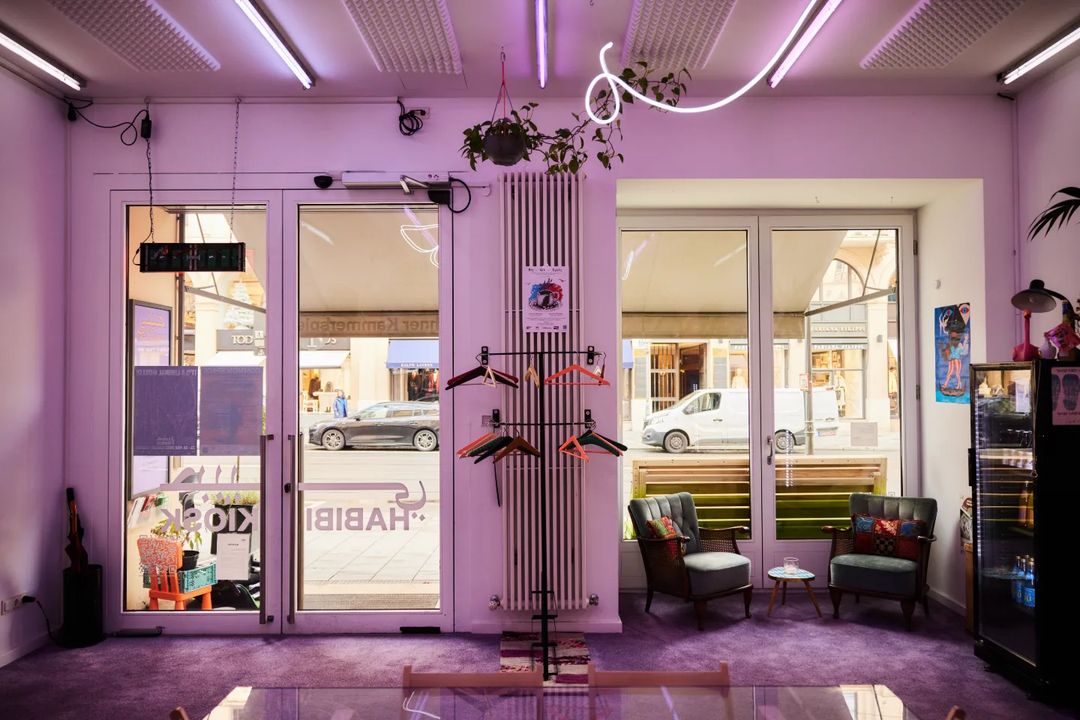
A former box office for the theater with two counters and big windows, “the space felt like a wasted opportunity to us, particularly in such an expensive street,” says Çapan. They decided to transform it into a familiar living room, with a stage, a small kitchen on the side provisioned with packed food from different countries – to make visitors feel at home– and a little library. An interesting display of books includes Let’s Talk about Sex, Habibi by author Mohamed Amjahid, Theater as Therapeutic Memory Work by Husain Zangana and Autocorrection – Mobility for a World Worth Living In by Katja Diehl.
Weeks earlier, I was able to get a sense of the topics that Habibi Kiosk embraces. I attended a couple of events in a series of performances called Confession Sessions. The themes – German colonialism, memory culture, and the plundering of Africa, to name a few – uncomfortable for some, concerning to others, all coalesce around a common ground of underrepresentation in the world of cultural institutions. And that is precisely where Habibi Kiosk’s team feels most comfortable: pushing at the edges, challenging the mainstream.
Born during the pandemic, the online events of the Habibi Kiosk were not always a hit, admits Reier-Roelly. But the idea of and the communication from the Habibi Kiosk really nailed the tremendous interest in creating an inclusive cultural space in Munich. By the time it officially opened its doors in October 2022, the Habibi Kiosk had already captured many hearts, locally and beyond.
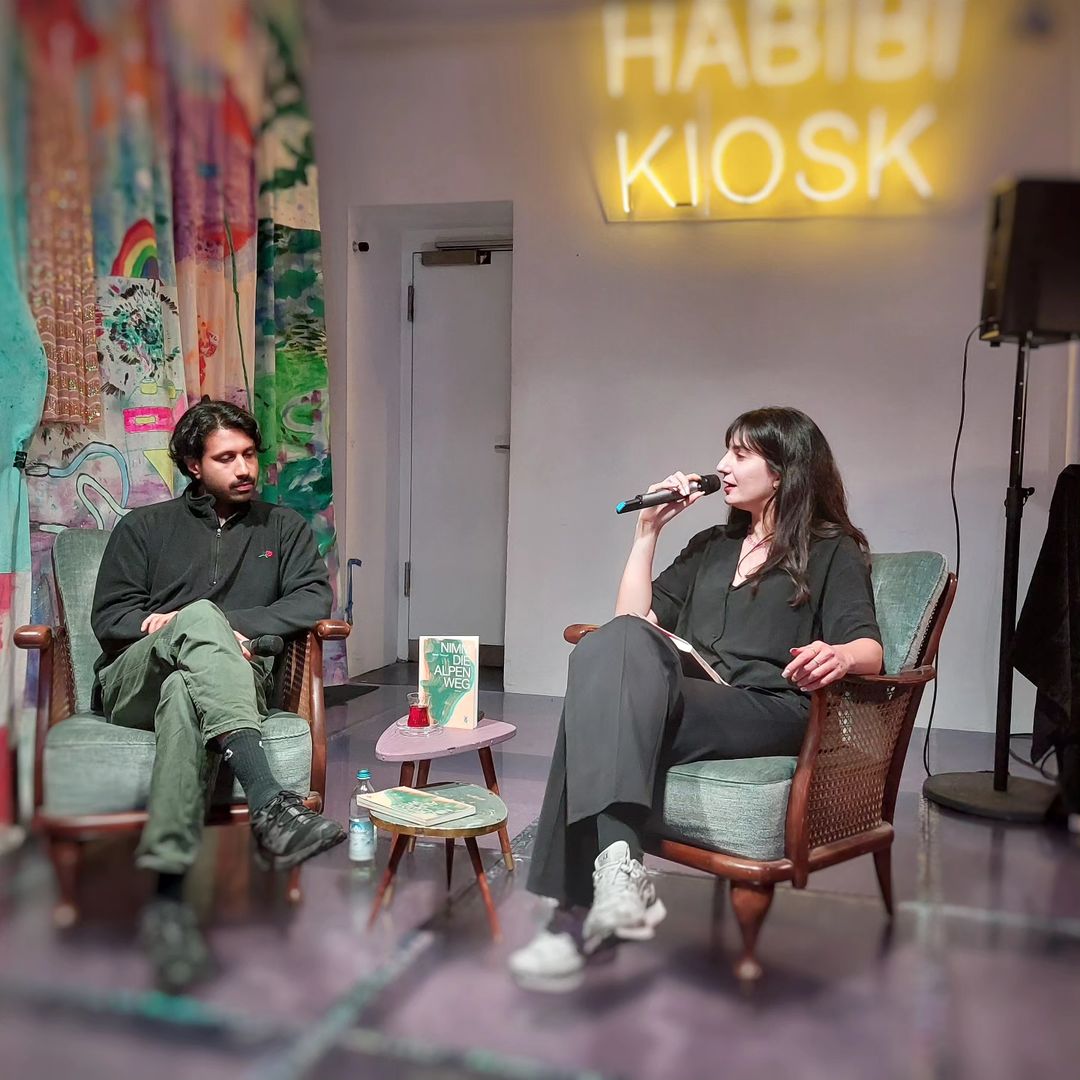
In a city where one in four residents hails from an immigrant community, the theater’s team began exploring the following question: Is Munich’s urban society – with all its different perspectives – represented at the theater of the city (financed with everyone’s taxes)? In other words, can we find a fair representation of all citizens here at the theater? In response, Habibi Kiosk’s team began hosting conversations, performances, exhibitions, living room concerts and more in this otherworldly stage that facilitates the exchange between the city and the theater. At the same time, visitors at the Habibi Kiosk hear each other’s perspectives, learn a little bit more about one another; the exchange flows in both directions, enriches the visitors and ultimately also the theater.
The malleability of that imperative is not always easy. In fact, some of the central tenets of the theater – find themselves under attack as rarely before. The bluntest criticism came, surprisingly, from an article published by the liberal local newspaper, Süddeutsche Zeitung, that provoked a storm of comments against the management of the Münchner Kammerspiele.
“In principle I just think it’s a shame, because such a cultural organ with its radiance in the city can ultimately motivate a process that cannot be stopped. It’s not about taking something away from those who have always had it, and giving this resource to someone else. It’s about making the resources of the theater useful to everyone,” says Reier-Roelly.
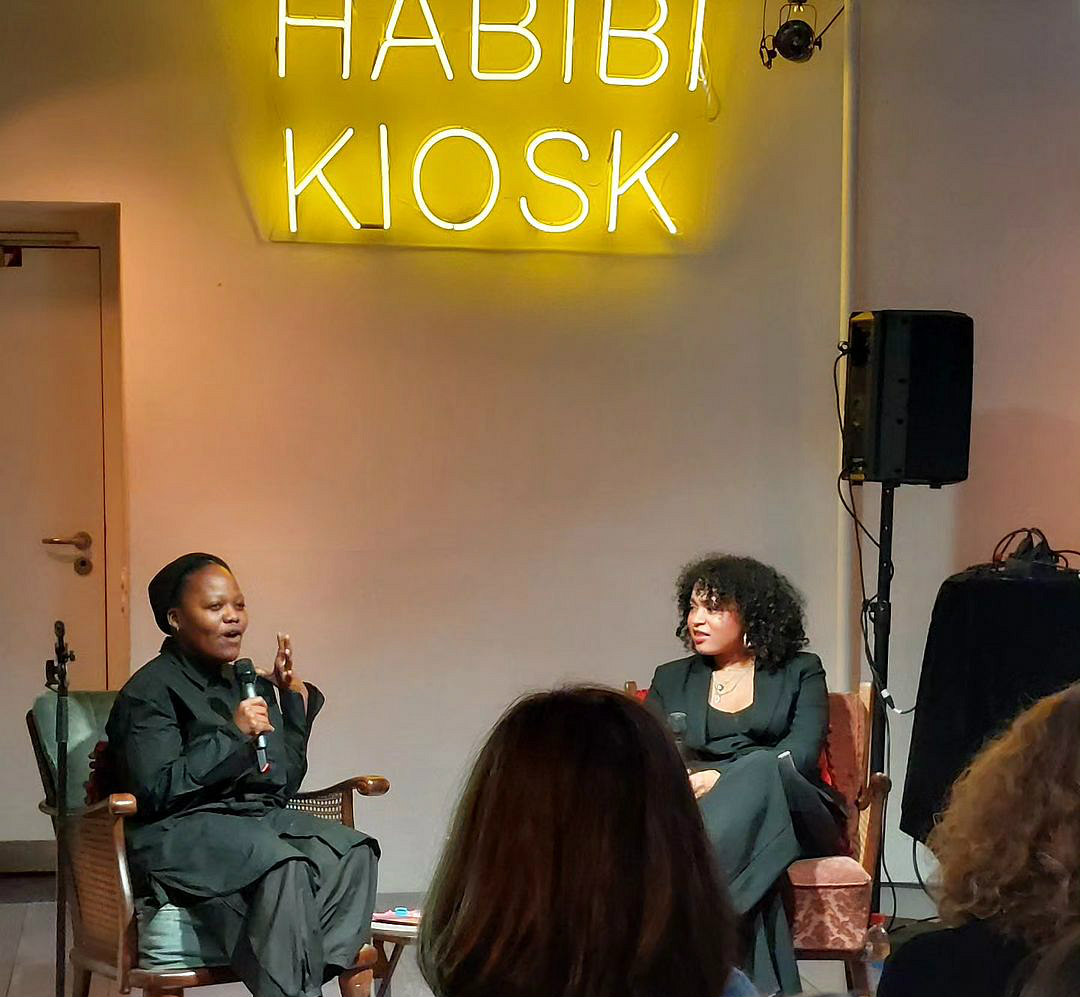
***
Theater as an institution is still a relatively difficult place for certain people to access. People think they don’t belong in the audience, or don’t even come up with the idea of going to the theater because they can’t connect with the things that happen inside. Or perhaps they simply can’t afford it. The Habibi Kiosk’s goal is also to provide that crucial, low-threshold access to culture in Munich, making it easier for diverse people to go to the theater, where the offerings may arouse their interest and allay their fears.
There is nothing for purchase at Habibi Kiosk. Events are always free of charge, and snacks and drinks are supported by donations. Interestingly, this model gives people a form of personal responsibility over the space. I suspect the wise choice of the name “Habibi Kiosk” also helps. Such an Arabic name on the swankiest street in the Bavarian capital certainly makes one curious.
In all Arabic dialects, Habibi means “darling” or “dear,” a positive and affectionate term also commonly known to non-Arabic speakers. I pointed out that it’s very interesting that some people associate this word, and in general the Arabic language, with religion. “That’s exactly where prejudices start. We assume that certain ‘groups’ represent all the people who might potentially belong to those ‘groups’, but it is not like that,” says Çapan. That’s why the name Habibi Kiosk epitomizes the cultural conundrums we find ourselves in and that the kiosk is attempting to deal with.
It’s important to assume, explains Reier-Roelly, that it’s not just about giving people in Munich the culture that interests them and confirms their own views. In fact, the Habibi Kiosk’s goal is not to target groups of people at all, but rather to throw new perspectives at each other. Even the word “perspectives” is thought through, and Reier-Roelly insists on it for its indication of a personal dialogue among all of us.
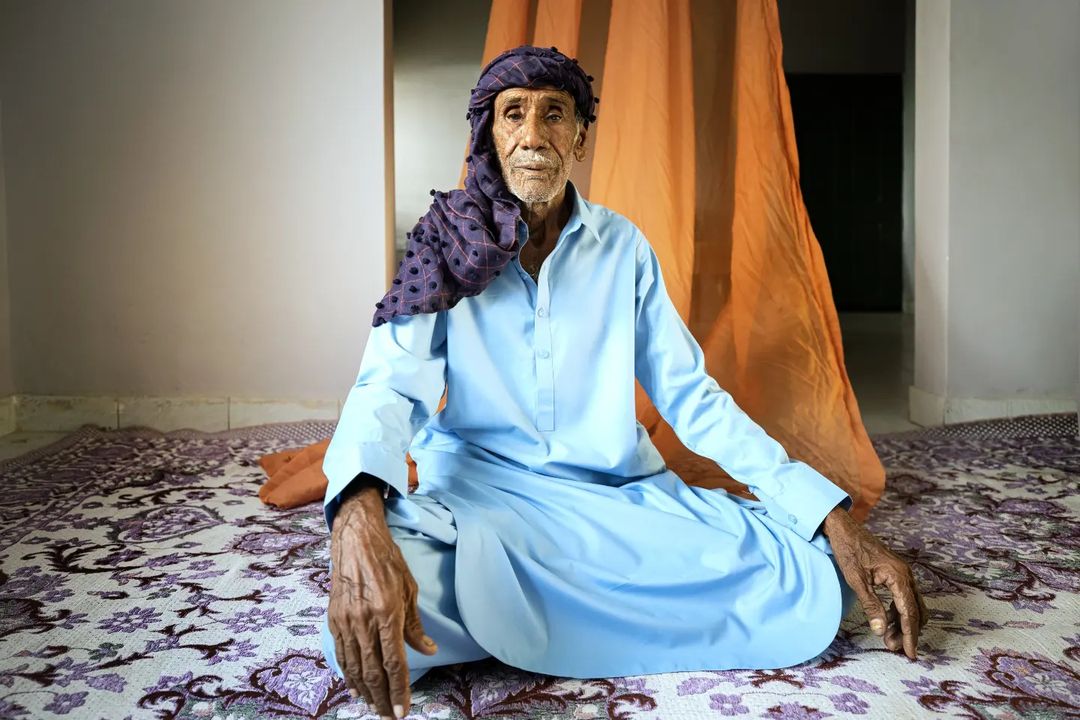
“We are lucky enough to be located right in the city center and have the resources that we have from the theater, to share them with people who represent those different perspectives that are always somehow in the periphery of the city,” reckons Çapan. At the same time, the Habibi Kiosk doesn’t reject the perspectives of its own upscale neighborhood. “We’re here for them too. Everyone who wants to learn something from others is warmly welcome.”
Çapan’s points to the demographic shift Germany has undergone since the immediate postwar era, and wonders why the demographic dynamics and the socio-political architecture of Munich are different from Berlin or Çapan’s hometown, Hannover, where all kinds of layers and backgrounds collide in the city center. “I think the reason primarily has to do with social classes. And then, of course, you have to look at who primarily belongs to the privileged social classes. These are mainly white people, plus expats and rich tourists from all over the world, especially here in Munich. I feel there is such a regulated core in this city, in which only certain people are allowed in and everything else has to be neatly followed the same way as always. I haven’t been in Munich long enough yet, just a year and a half, but this has really struck me from the beginning,” says Çapan.
But a new culture in Munich is emerging, not only for those people attending the Habibi Kiosk, but also for those willing to finally accept that a new culture in Munich is unstoppable, and they could be part of something excitingly bigger. All they have to do is show up.
